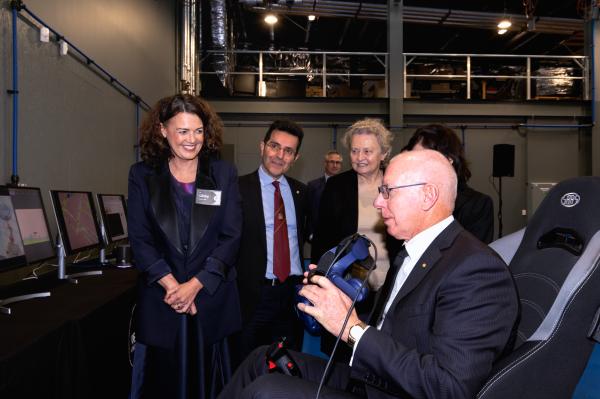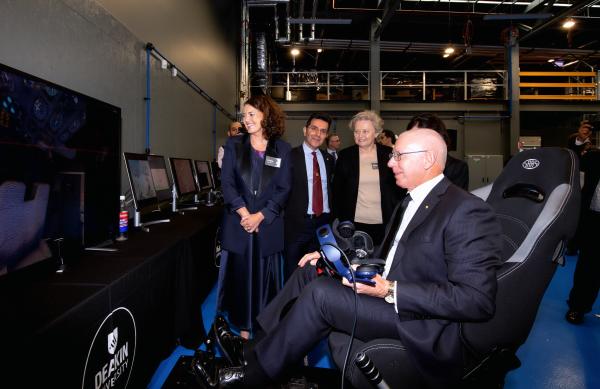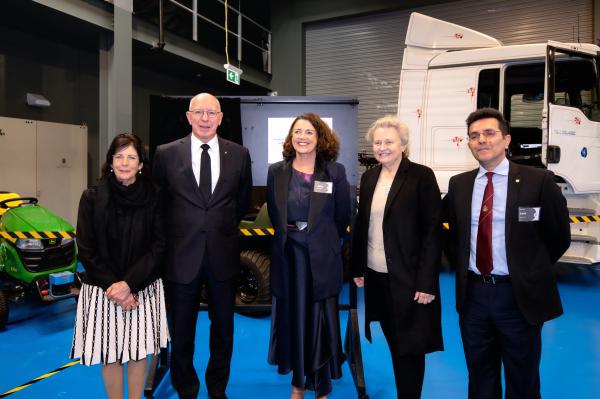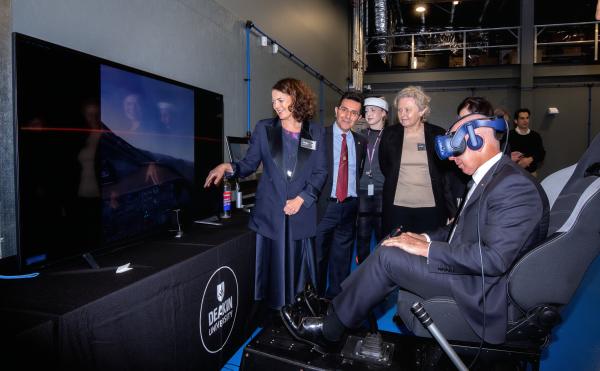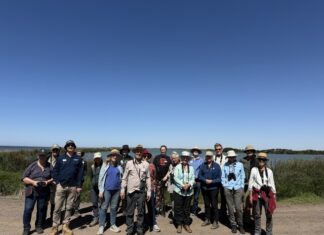A new building equipped to handle secret classified research officially opened at Deakin University with a visit from Governor-General David Hurley on Monday.
“You’ve got the future firmly in your sights,” said General Hurley (retired), a Deakin graduate, as he toured the facility at the university’s Waurn Ponds campus.
The $18 million building will make Deakin University the first in Australia with a highly-secure research environment for zone 4 classified, secret-rated Department of Defence and defence industry research.
According to Deakin, the building will extend the university’s “world-leading” research and development in motion simulation, robotics, haptics, defence systems, and modelling and simulation.
Deakin Vice-Chancellor Iain Martin expected the building to expand the capacity of the university’s Institute for Intelligent Systems Research and Innovation (IISRI).
“The building houses the next generation technologies for defence-related research and development and entrepreneurship activities at Deakin,” Professor Martin said.
“It will also enable us to continue to build on the university’s already strong relationships with local industry through the Geelong Future Economy Precinct and the benefits this provides to the community.”
The building features an electronics and fabrication area for prototyping, and assembling components and machines.
The facility also includes three laboratories specialising in electroencephalography (EEG), haptics and force, and neural and cognitive systems.
In the first laboratory researchers will be able to test working memory and human performance while using EEG to monitor the brain’s electrical activity.
The second laboratory will enable further research in haptics – technology that creates an experience of touch by applying forces, vibrations, or motions to the user.
The laboratory will also allow research into biomechanics, virtual and augmented reality, force-sensing materials and various other technologies in combination with EEG monitoring.
The third laboratory will support neurophysiological studies examining the behaviour and properties of brain and nerve cells.
IISRI director Saeid Nahavandi said the building’s “state-of-the-art technologies” would allow the institute’s more than 100 researches to conduct “world-class” studies.
Strong government and industry partnerships would help “translate” this “research into real social impact” by generating local and national economic benefits and jobs, Professor Nahavandi said.


